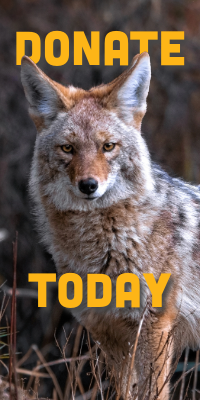Gray wolves delisted by the U.S. Fish and Wildlife Service in 2020 have been returned to protections afforded by the Endangered Species Act by court order.
On Feb. 10, 2022, District Court Judge Jeffery White of the Northern District of California ruled in favor of three radical animal-rights and environmental groups seeking to return wolves in the lower 48 States (except Idaho, Montana and Wyoming and portions of neighboring states) to protected status. Defenders of Wildlife, Natural Resources Defense Council and Wildearth Guardians filed suit against the USFW and Department of Interior seeking to overrule a Trump-era delisting of the apex predators.
Among other points, Judge White found that “the Service’s analysis relied on two core wolf populations to delist wolves nationally and failed to provide a reasonable interpretation of the ‘significant portion of its range’ standard.”
The 26-page ruling issued by District Court Judge White putting wolves back on the endangered/threatened list applies to all gray wolves in the lower 48 states, except those found in Idaho, Montana and Wyoming and portions of neighboring states, which were delisted by Congressional action in 2011. Any appeal of Judge White’s ruling would be to the Ninth Circuit Court of Appeals.
“We’re very disappointed by today’s ruling, as it’s clear that wolves have recovered across their intended range when placed under federal protection,” said Evan Heusinkveld, president and CEO of the Sportsmen’s Alliance Foundation, which filed an amicus brief in the court case. “We will continue to work with our partners to ensure recovered wolf populations are properly delisted and returned to state management as was laid out in the 2017 court case.”
In the 2017 Great Lakes wolf ruling, the court laid out a road map for FWS to delist the Western Great Lakes wolves and dismantled many of the dangerous and unsupported holdings in a lower court decision. That ruling also demonstrated that delisting of Great Lakes wolves by distinct population segment was supported as a way to scientifically manage recovered wolf populations.
“We will continue to evaluate today’s ruling while examining our legal options moving forward,” said Heusinkveld.
About the Sportsmen’s Alliance: The Sportsmen’s Alliance protects and defends America’s wildlife conservation programs and the pursuits – hunting, fishing and trapping – that generate the money to pay for them. Sportsmen’s Alliance Foundation is responsible for public education, legal defense and research. Its mission is accomplished through several distinct programs coordinated to provide the most complete defense capability possible. Stay connected to Sportsmen’s Alliance: Online, Facebook, Twitter and Instagram.





